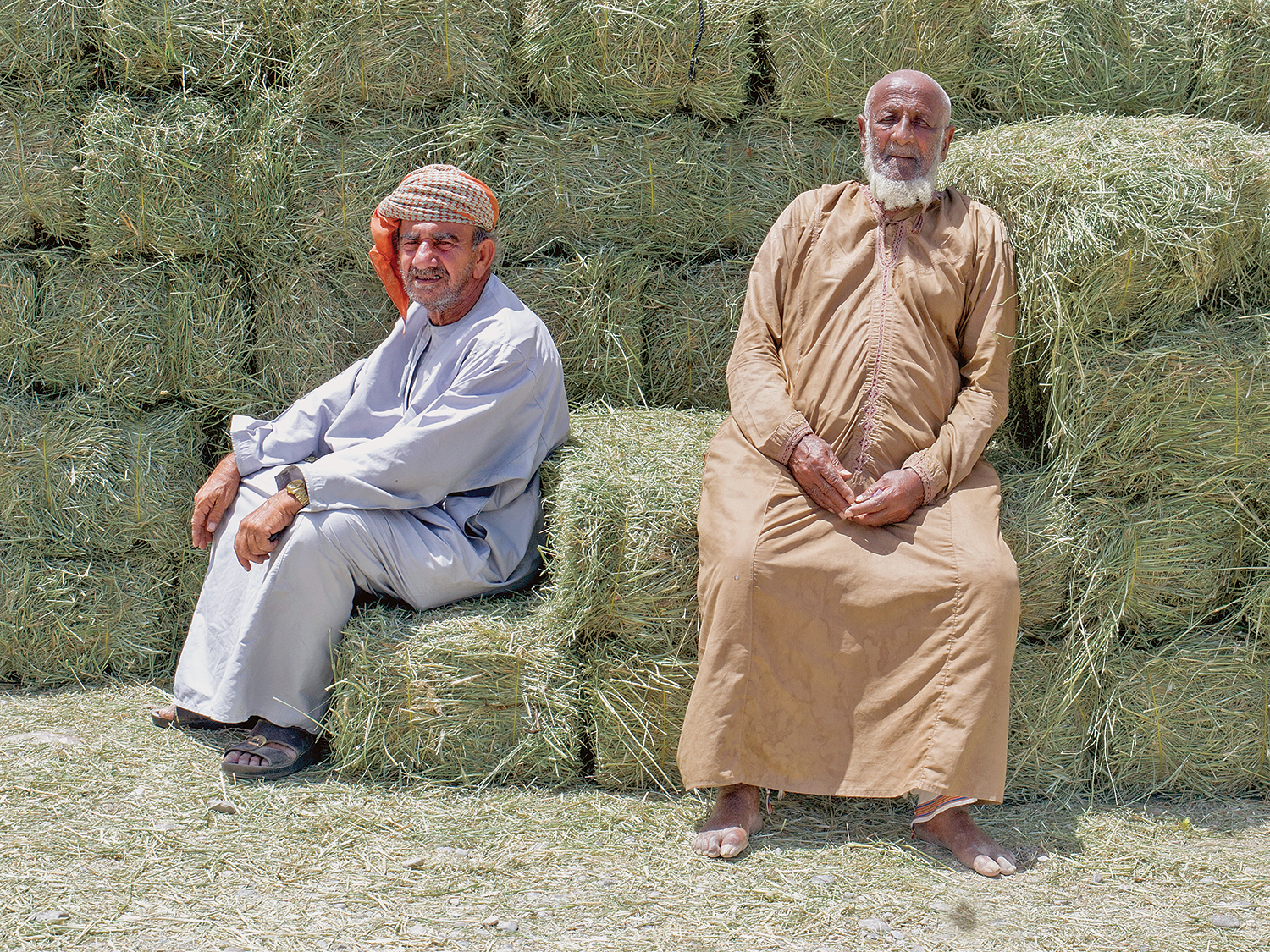

By Lakshmi Kothaneth — MUSCAT: April 16 - Farmers in the Wilayat of Sur say the ‘business is good,’ but would like to have a farmers’ market with a shelter. At this open market, which is a daily affair, youngsters work with keen interest along with the elders. Khalid al Qasmi has farms in Sur. He collects his produce and brings it to the market, where others in the family or traders continue with the selling. The sun is bright and the sellers take refuge under the shadow of their vehicles until customers come to purchase the produce.
Just as Al Qasmi came in to check on the day’s business in his pick-up truck, he said to Observer, “Farms are nearby. We bring our produce here and although we sell fruits, the ones in demand are the forage crop, known as ‘Tham’ locally.”
Bundles of fresh cut fodder such as the ‘Barseem’ alfalfa is grown both for local consumption as well as export. Customers buy alfalfa for the horses and cattle.
Although Sur in Al Sharqiyah Governorate is more popular for its shipping industry and fisheries, the demand for livestock fodder indicates its importance in agriculture as well.
According to Food and Agriculture Organisation’s report on The State of Plant Genetic Resources for Food and Agriculture in Oman’ (2008) in coordination with Directorate General of Agriculture and Livestock, Ministry of Agriculture and Fisheries, “In Wadi Al Batha, agriculture is concentrated around Ibra, Ad Dariz, Al Ghabbi and Al Wafi. The area under crops is estimated to be 1,500 ha in 26 oases irrigated mainly by falaj system. The Sur plains seem to have a very limited potential for development due to seawater intrusion. In contrast, the Wadi Batha plain seems to offer the best potential for agriculture because of the existence of highly suitable soils associated with good quality groundwater in Jalaan around Al Kamil and W’al Wafi. Irrigation in this region is achieved by falaj systems. Private farms employ flood or furrow irrigation methods.”
Along with alfalfa, barley is also popular. For Habib Juma al Zadjali, the open farm market has proved to be a saviour when his business of exporting fish to other GCC countries collapsed due to a mishap and caused a financial loss.
“From driving taxis, I have moved towards buying trailers. The business is good because there is a constant need for fodder. I bring produce from Barka to sell in Sur. But what we need is a farm market that also has shade.”
While Said al Qasmi, one of the younger family members, tosses the bundles of fodder to the back of the pick-up truck, others walk around the heap, looking for the best lot by weighing the bundles with their hands.
Just like the dedicated souqs in the vegetable and fish market, farmers feel a few shelters are very essential in the open market.
Oman Observer is now on the WhatsApp channel. Click here



